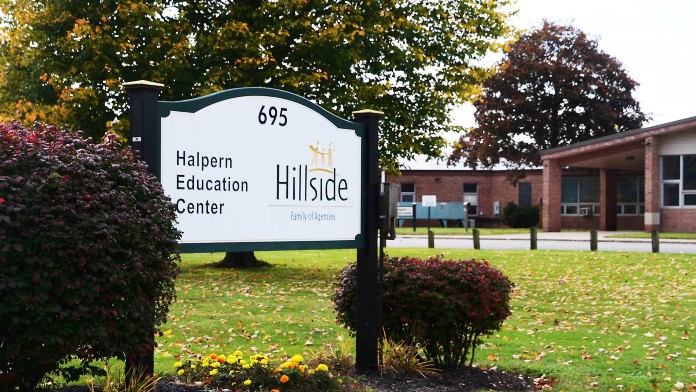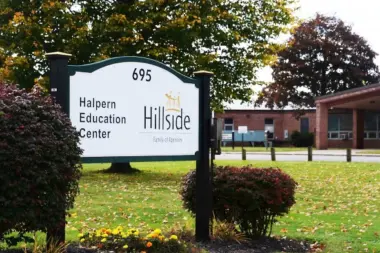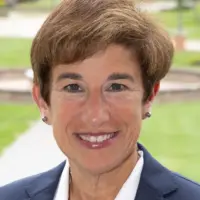About Hillside Children’s Center – Day Treatment
Hillside Children’s Center features a day treatment and schooling facility for children and adolescents. They’re west of downtown Webster, New York, and just east of Irondequoit Bay. Plenty of parks and nearby spaces provide scenic trails, tranquil spaces, and areas for reflection. This facility is near local schools, churches, and libraries, which helps these adolescents work with their community and support structures.
Adolescent Treatment for Alcohol & Substance Use Disorder
Hillside Children’s Center provides day treatment for youth with alcohol and substance use disorders. Through family advocacy programs and case management resources in clients’ communities, the staff provides individual treatment plans based on each child’s needs while focusing on behavioral and mental health needs, including emotional support and post-treatment plans.
The center is highly supervised with well-trained educators and medical professionals. These medical professionals include psychiatrists, therapists, and behavioral interventionists who all focus on the needs of the adolescents who attend the children’s center. The Hillside Children’s Center is appropriate for those who need up to intensive outpatient/partial hospitalization level care for day treatments, but not overnight care.
Youth Educational Support & Mental Wellness
This location also houses the Halpern Day Treatment Center, which focuses on children and adolescents ranging from age 6 to 12 who need help with their behavioral and mental health. The facility focuses on integrated health treatments and not just substance use disorders. Staff provides daily group and individual counseling that addresses social, emotional, and behavioral wellness.
These individuals who attend Halpern generally need a structured educational program with core subjects as they may be disruptive in their school, community, or home life. Hillside helps these children learn their challenges and correct them so they can create life skills. The staff coordinates closely with the local schools to ensure academic support and efficiency.
Affordable Children’s Mental, Behavioral & Emotional Care
Hillside Children’s Center in New York accepts Medicaid and most major insurance plans. They generally accept referrals through schools and pediatricians. However, they evaluate and assess all children. The facility also works with families who may need to pay out-of-pocket or those who are experiencing financial hardships.
Rehab Score
Gallery


Other Forms of Payment
Financial aid can take many forms. Centers may have grants or scholarships available to clients who meet eligibility requirements. Programs that receive SAMHSA grants may have financial aid available for those who need treatment as well. Grants and scholarships can help you pai for treatment without having to repay.
Medicaid is a state based program that helps lower-income individuals and families pay for healthcare. Medicaid covers addiction treatment so those enrolled can use their coverage to pay for rehab. When a program accepts Medicaid the client often pays very little or nothing out of their own pocket.
Addiction Treatments
Levels of Care
Outpatient Programs (OP) are for those seeking mental rehab or drug rehab, but who also stay at home every night. The main difference between outpatient treatment (OP) and intensive outpatient treatment (IOP) lies in the amount of hours the patient spends at the facility. Most of the time an outpatient program is designed for someone who has completed an inpatient stay and is looking to continue their growth in recovery. Outpatient is not meant to be the starting point, it is commonly referred to as aftercare.
Treatments
Many of those suffering from addiction also suffer from mental or emotional illnesses like schizophrenia, bipolar disorder, depression, or anxiety disorders. Rehab and other substance abuse facilities treating those with a dual diagnosis or co-occurring disorder administer psychiatric treatment to address the person's mental health issue in addition to drug and alcohol rehabilitation.
Mental health rehabs focus on helping individuals recover from mental illnesses like bipolar disorder, clinical depression, anxiety disorders, schizophrenia, and more. Mental health professionals at these facilities are trained to understand and treat mental health issues, both in individual and group settings.
Programs
Young adulthood can be an exciting, yet difficult, time of transition. Individuals in their late teens to mid-20s face unique stressors related to school, jobs, families, and social circles, which can lead to a rise in substance use. Rehab centers with dedicated young adult programs will include activities and amenities that cater to this age group, with an emphasis on specialized counseling, peer socialization, and ongoing aftercare.
Clinical Services
Cognitive Behavioral Therapy (CBT) is a therapy modality that focuses on the relationship between one's thoughts, feelings, and behaviors. It is used to establish and allow for healthy responses to thoughts and feelings (instead of unhealthy responses, like using drugs or alcohol). CBT has been proven effective for recovering addicts of all kinds, and is used to strengthen a patient's own self-awareness and ability to self-regulate. CBT allows individuals to monitor their own emotional state, become more adept at communicating with others, and manage stress without needing to engage in substance abuse.
Whether a marriage or other committed relationship, an intimate partnership is one of the most important aspects of a person's life. Drug and alcohol addiction affects both members of a couple in deep and meaningful ways, as does rehab and recovery. Couples therapy and other couples-focused treatment programs are significant parts of exploring triggers of addiction, as well as learning how to build healthy patterns to support ongoing sobriety.
Dialectical Behavior Therapy (DBT) is a modified form of Cognitive Behavioral Therapy (CBT), a treatment designed to help people understand and ultimately affect the relationship between their thoughts, feelings, and behaviors. DBT is often used for individuals who struggle with self-harm behaviors, such as self-mutilation (cutting) and suicidal thoughts, urges, or attempts. It has been proven clinically effective for those who struggle with out-of-control emotions and mental health illnesses like Borderline Personality Disorder.
Experiential therapy is a form of therapy in which clients are encouraged to surface and work through subconscious issues by engaging in real-time experiences. Experiential therapy departs from traditional talk therapy by involving the body, and having clients engage in activities, movements, and physical and emotional expression. This can involve role-play or using props (which can include other people). Experiential therapy can help people process trauma, memories, and emotion quickly, deeply, and in a lasting fashion, leading to substantial and impactful healing.
Research clearly demonstrates that recovery is far more successful and sustainable when loved ones like family members participate in rehab and substance abuse treatment. Genetic factors may be at play when it comes to drug and alcohol addiction, as well as mental health issues. Family dynamics often play a critical role in addiction triggers, and if properly educated, family members can be a strong source of support when it comes to rehabilitation.
Group therapy is any therapeutic work that happens in a group (not one-on-one). There are a number of different group therapy modalities, including support groups, experiential therapy, psycho-education, and more. Group therapy involves treatment as well as processing interaction between group members.
In individual therapy, a patient meets one-on-one with a trained psychologist or counselor. Therapy is a pivotal part of effective substance abuse treatment, as it often covers root causes of addiction, including challenges faced by the patient in their social, family, and work/school life.
Trauma therapy addresses traumatic incidents from a client's past that are likely affecting their present-day experience. Trauma is often one of the primary triggers and potential causes of addiction, and can stem from child sexual abuse, domestic violence, having a parent with a mental illness, losing one or both parents at a young age, teenage or adult sexual assault, or any number of other factors. The purpose of trauma therapy is to allow a patient to process trauma and move through and past it, with the help of trained and compassionate mental health professionals.
Staff

Maria Cristalli
President & CEO

Calista Amering
Chief Advancement Officer

Elizabeth Nolan
COO

Christopher Peterson
CFO

Darlene Ryan
Chief Performance Officer
Contact Information
695 Bay Road
Webster, NY 14580